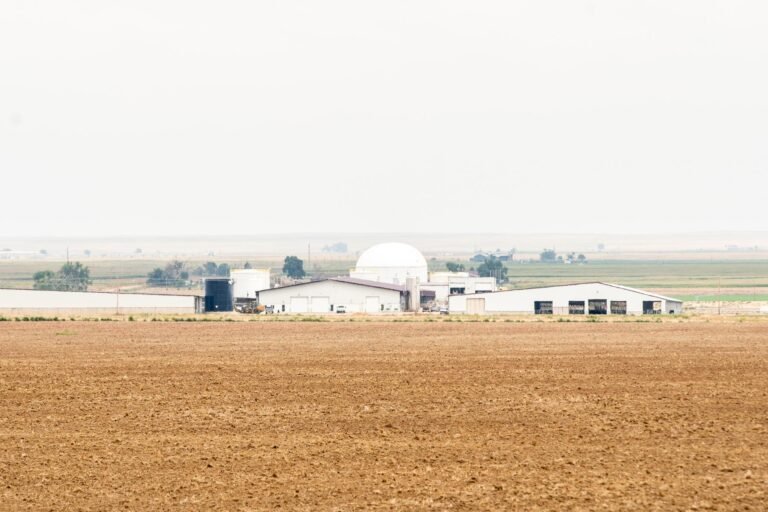What if you could turn your struggles into strengths while also helping those in need? This powerful idea comes to life in Orange County, where youth at a local juvenile hall not only confront their own challenges but also become champions for dogs in need of love and rehabilitation. Through compassion, training, and teamwork, these young individuals are finding healing and purpose by partnering with rescued dogs, preparing them for their forever homes.

This image is property of ca-times.brightspotcdn.com.
The Cell Dogs Program: A Transformative Experience
At the heart of this initiative is the Cell Dogs program, an innovative effort that connects incarcerated youth with dogs rescued from local shelters. The program aims to teach these young individuals valuable skills while simultaneously offering love and companionship to the dogs as they recover from trauma.
Building Connections Through Compassion
One of the most rewarding aspects of this program is the emotional connection that develops between the youth and the animals. Young people, often lacking the opportunity to express their feelings, find a unique bond with these dogs, who have their own stories of abandonment and trauma. You learn that compassion and vulnerability are essential, both for understanding the dogs and for your own personal growth.
Skills for Life
The program is more than just a means to connect with animals; it’s designed to impart invaluable skills. Through hands-on training, you learn how to handle dogs, understand their behaviors, and even master commands. These experiences not only enrich your understanding of animal care but also provide you with career skills that can be beneficial once you exit the juvenile system.
Personal Stories of Growth
The journey of those involved in the program is at the core of its success. Take, for example, Nhut Thanh Vo. After serving a lengthy sentence related to past actions, he found a new direction through training dogs.
Finding Purpose
Despite his difficult past, Nhut expressed a desperate need for connection, which he found in the gentle eyes of a dog. “With a dog, you need to be vulnerable,” he stated, conveying how this relationship allows both parties to grow and heal. Like Nhut, many youth discover how working with animals can mirror their own path toward rehabilitation and personal redemption.

This image is property of ca-times.brightspotcdn.com.
The Training Process: Nurturing Relationships
Working with animals from the outset of the program involves not just training but also nurturing relationships. As you begin your hands-on experience, it’s crucial to realize that each dog has its own personality and history.
Establishing Trust
The initial encounters can sometimes be challenging. Dogs like Snickers and Ziggy, for instance, may show apprehension towards humans, mirroring the fears and uncertainties that many of the youth may also feel. Your role becomes one of patience and understanding, as you earn their trust through gradual interactions.
| Dog’s Name | Background | Initial Behavior | Outcome |
|---|---|---|---|
| Snickers | Rescued from Shelter | Apprehensive toward humans | Successful training |
| Ziggy | Rescued from Shelter | Hesitant and fearful | Bonded well with trainer |
| Penny | Rescued from Shelter | Friendly but unresponsive | Learned commands |
A Shared Journey
As you and your fellow participants bond with the dogs, you also learn about teamwork and collaboration. Many young people in the program face daily challenges, such as court dates or studies, but they learn to support each other, ensuring that training remains consistent and effective.
Graduation Day: A Bittersweet Moment
Graduation day is a significant milestone, marking the completion of the training program. It is here that the youth present the dogs they’ve trained to their new families. The atmosphere is filled with pride, accomplishment, and a hint of sadness as these young trainers prepare to say goodbye.
Celebrating Achievements
During the ceremony, certificates are awarded to the participants signaling the completion of their training. These moments symbolize not only the dogs’ readiness for their new lives but also the personal growth experienced by each youth throughout the program.
Learning to Let Go
The act of letting go can be challenging. Many participants express their feelings openly. As they hand over the leashes to new owners, there are tears and hugs, underscoring the deep emotional connections formed. It’s a profound lesson in love, care, and the importance of transitions. Despite the sadness, the knowledge that the dogs are moving on to loving homes provides comfort.

This image is property of ca-times.brightspotcdn.com.
From Youth to Future Professionals
The experiences gleaned from the Cell Dogs program offer more than just momentary fulfillment; they can pave pathways to potential careers. Many of the young participants express interest in pursuing future roles in veterinary care or dog training.
A Lifelong Impact
Those aspirations aren’t mere dreams; they are now tangible goals thanks to the skills developed in the program. During their training, these youth not only learn how to interact with animals but also develop empathy, responsibility, and teamwork. Such skills foster a sense of purpose and direction.
| Career Aspiration | Number of Participants |
|---|---|
| Veterinary Assistance | Multiple |
| Dog Trainer | Several |
| Animal Care Worker | A few |
Support from Community and Officials
Community support plays a crucial role in the sustainability of programs like Cell Dogs. Local officials often recognize the value of such initiatives, encouraging their continuation and growth.
Acknowledging Efforts
During the graduation ceremony, Orange County Chief Probation Officer Daniel Hernandez commended the participating youth. He highlighted how the program allows them to not only teach the dogs but also to learn about themselves. His acknowledgment reinforces the significance of helping incarcerated youth find constructive activities that foster personal development.
Building a Support Network
Community efforts extend beyond graduation ceremonies. Volunteers and staff from local shelters often step in, providing additional resources, training, and guidance for both the youth and their canine partners. This network fosters a sense of belonging and reinforces positive relationships beyond the juvenile hall walls.

This image is property of ca-times.brightspotcdn.com.
Looking Toward the Future
The Cell Dogs program stands as a testament to the potential for transformation in both young people and animals. As the partnership continues, the impact ripples outward, demonstrating that rehabilitation can happen in various forms and scenarios.
Ongoing Opportunities
The journey doesn’t end at graduation. Each successful pairing paves the way for the next group of youth and dogs. With each cycle, skills are honed, relationships deepened, and lives changed for the better. The program is constantly evolving, ensuring it adapts to the needs of future participants and the animals they help.
A Call to Action
If you’re moved by the story of the Cell Dogs program, consider how you can contribute. Whether through volunteering your time, making donations to local shelters, or advocating for similar initiatives in your community, every effort counts. By working together, we can help create a brighter future not just for incarcerated youth but also for the countless animals in need of loving homes.
In conclusion, the journey of rehabilitation, connection, and compassion that unfolds in places like Orange County Juvenile Hall proves that hope can thrive even in challenging environments. With programs that foster personal growth while helping others, there is always an opportunity to turn struggles into strengths and create a community rooted in kindness.



